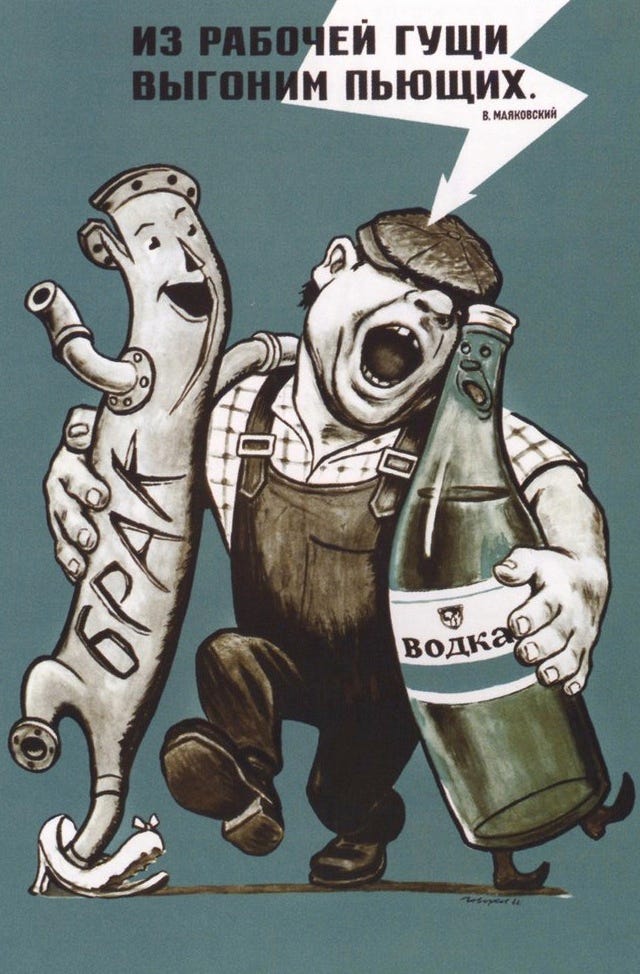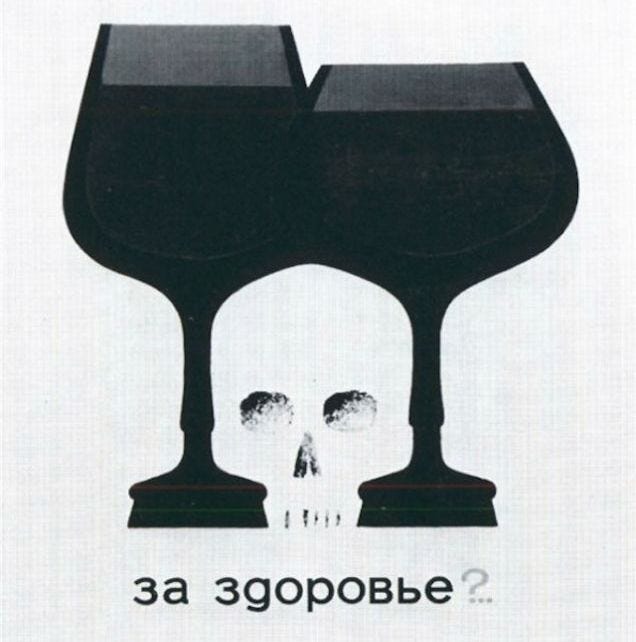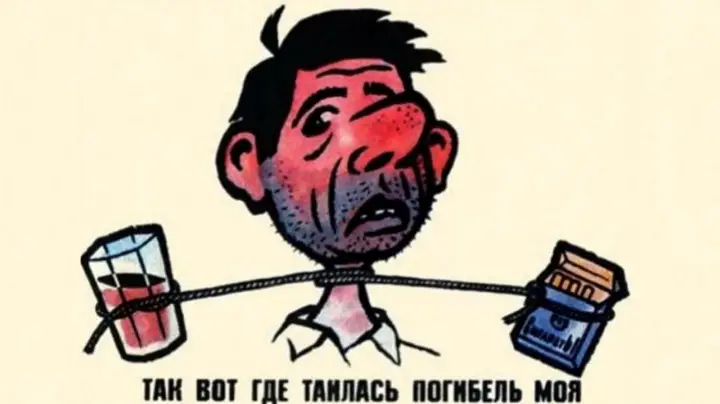 he Soviet Union since the start of the 20th century and until the collapse of communism didn’t really know what to do about the two most common vices in the world that keep killing people. The Soviet Government wasn’t really pushed by any external organization to put a stop to the consumption of alcohol and tobacco, but many people were dying due to excessive consumption, and this sort of killed their working force.
he Soviet Union since the start of the 20th century and until the collapse of communism didn’t really know what to do about the two most common vices in the world that keep killing people. The Soviet Government wasn’t really pushed by any external organization to put a stop to the consumption of alcohol and tobacco, but many people were dying due to excessive consumption, and this sort of killed their working force.
Soviet leaders were mostly indecisive and we can blame the communist system for this in a way. In the early era of Stalinist Communism, most people were either killed for not respecting the rules or from intensive labor. Having people die from other things besides health issues that were not caused by smoking or drinking was unacceptable as this lead them to a quick decline in their huge workforce.
Smoking wasn’t seen as bad as drinking because it would take far longer for smoking to show signs of health problems and smoking would not make you drunk and unable to work or care for your family. This is the reason why a bunch of propaganda posters had been created over the last century towards combating drinking and smoking.

Historian Martin McKee wrote an interesting article in the Oxford Journals entitled “Alcohol in Russia” where he mentions that due to the culture of the Soviet Union, there weren’t many stress relievers apart from drinking and smoking. People simply did not have the time nor the energy to do anything else and this is once again because of the intensive labor that most citizens were faced with.
Start of the anti-drinking propaganda
Since the revolution that took place in 1917, the new government has tried to combat the consumption of alcohol by limiting the amount of alcohol that was produced to a certain limit. This made alcohol very difficult to be found within the stores of the Soviet Union and also a huge increase in the price of alcohol.

In 1921 the laws became even tighter as they allowed each person to only purchase one bottle at a certain period of time. This also brought the rise of many people and even distilleries making moonshine and illegally selling them. With things getting out of control, in 1925 the Bolsevich Government was forced to remove all laws laid on the production of alcohol and this is not necessarily because of people making and selling moonshine, but the Soviet economy was falling.
Economy dependent on Drunk people
Until the early 1970s, a third of the Soviet economy was coming from the export of alcohol. Since the decline of the economy caused by the laws between 1917–1925 and the effect that World War II had on the Soviet Economy, after the end of the Second World War, Stalin encouraged citizens to consume alcohol to increase the economy of the country.
Every leader had their own ideology on the consumption of alcohol and tobacco. Nikita Khrushchev and Constantin Cernenko were another two Soviet leaders who really tried to combat the use of alcohol and tobacco. Another problem within the system was the correlation between alcohol and crimes committed in the Soviet system.

The most effective way that the Soviet Union got rid of alcoholics was by making companies and factories fire any worker that would come drunk at work. The propaganda posters used for this worked great, bringing quite a significant decline in the drinking population and pushing the Soviet Union towards investing in other infrastructure so a third of their economy would not be produced by selling alcohol.
Political implications
The communist political system was quite contradicting as with new leaders, new laws came along and each country within the Soviet Union was adapting its own sort of rules. There is nothing on paper saying that people were shot by secret police organizations, however, there are many rumors from old times, some that I even heard myself. If this is really true and I myself believe it is due to the stories heard about ex-KGB officers, we can really say that alcohol really killed people within the Soviet Union. However, as I have no proof of this I can only give you a belief on this one, so do take it with a pinch of salt.

One thing that isn’t a rumor and which I heard from my Great Grandfather is that there was a time in the early 1980s where people were not allowed to own more than a bottle of spirits inside their house. Police would sometimes go inside people’s houses to search them for alcohol and those who had excessive amounts of alcohol would be fined or even sentenced to prison depending on the amount of alcohol they had on them.
Once again, the propaganda worked best, especially in the form of posters and this does prove it by the enormous amount of posters from the early 20s until the late 80s, and this just proves that those under communism are easily manipulated as they are not allowed to develop their knowledge with other existing political systems, religions, beliefs or truths. The citizens of the Soviet Union and other countries under the reign of Communism within the 20th century were so brainwashed that you could tell them that in Egypt the snow is yellow and they would probably believe it if it came out of the right mouth.
Russia and taking into consideration countries from the former Soviet Union are still the biggest consumer of alcohol to date and once again a good percentage of the present Russian economy does come from alcohol consumption. The government is trying to start various campaigns to lower the consumption of alcohol.
Avid Writer with invaluable knowledge of Humanity!
Upcoming historian with over 30 million views online.
“You make your own life.”





